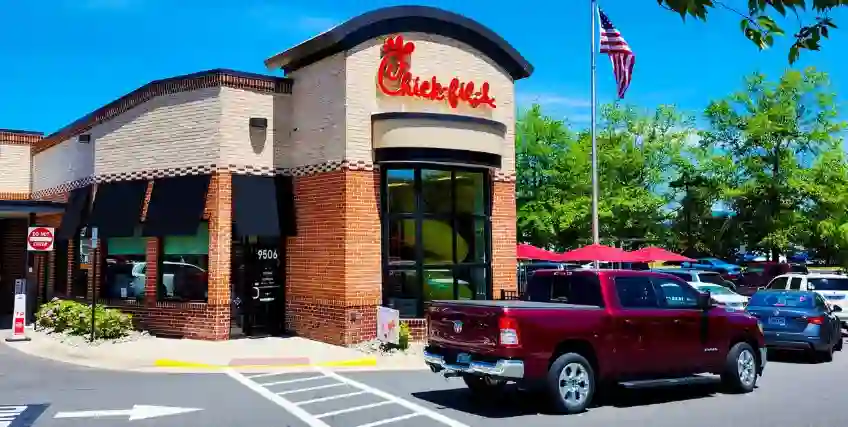Looking for Business Financing?
Apply now for flexible business financing. Biz2Credit offers term loans, revenue-based financing, lines of credit, and commercial real estate loans to qualified businesses.
Set up a Biz2Credit account and apply for business financing.
Franchising can be a powerful way to scale and expand your business. Established entrepreneurs who are ready to move beyond their initial location and scale their operations can use franchising as a somewhat more predictable path to business expansion rather than starting something original from scratch. But to do this, you need both an excellent business plan and excellent business loans.
While traditional bank loans are an option for many business owners, the gold standard for long-term financing options remains the lending programs backed by the U.S. Small Business Administration (SBA).
The SBA partially guarantees loan funds and lines of credit, mitigating the risk for lenders and allowing them to offer capital with lower down payments, longer repayment terms, and competitive interest rates. Aspiring franchise owners can find specifically structured SBA business expansion loans that are perfectly tailored to cover everything from construction and real estate acquisition to franchise fees and working capital for a new store opening.
In this article:
- Understanding the unique requirements of SBA business expansion loans, including the crucial role of the SBA Franchise Directory.
- Discovering the right small business expansion loan options for your particular situation.
- Learning tips to qualify and secure SBA loans for expansion.
Types of SBA Business Expansion Loans
Franchise owners have two primary options for accessing low-cost, long-term SBA business expansion loans: the 7(a) loan program and the 504/CDC loan program . The right choice depends on how you plan to use the funding.
- SBA 7(a) Loans
-
Working capital: Covering essential costs like payroll, utilities, and inventory.
-
Franchise fees and licensing: Financing the upfront costs required by the franchisor, including any business acquisition costs.
-
Equipment and inventory: Purchasing necessary fixtures, Point-of-Sale (POS) systems, or initial stock.
-
Space improvements: Covering the costs of remodeling or customizing a leased space.
- SBA 504 loans and CDC loans
The SBA’s flagship program, 7(a) offers the most flexible structure for SBA business expansion loans. These loans have a maximum loan amount of up to $5 million, making them much more extensive than microloans, and may be used for virtually any business purpose.
Franchisees may use 7(a) loans for:
The SBA 7(a) loan offers long repayment terms and lower interest rates, making it more manageable business debt. However, the loan application process is rigorous, eligibility requirements are strict, and it may take several months to get approved for a loan.
The 504/CDC program offers long-term small business expansion loans that facilitate expansion through acquiring fixed assets. If your next location involves purchasing commercial real estate or financing significant new construction, this is the right type of loan for you.
These loans typically have a maximum project size of up to $5.5 million in SBA debenture funding, which may finance total project costs over $10 million. The 504/CDC loan program has a unique structure that includes 50% of financing from business banking, 40% from a Certified Development Company (CDC) through the SBA, and 10% from the borrower.
These SBA business expansion loans typically have fixed rates with terms of 10, 20, or 25 years, making them stable loans to support long-term business growth.
How to Verify Eligibility Through SBA Franchise Directory
Any franchise owner seeking SBA business expansion loans has to verify the eligibility of the franchisor through the official SBA Franchise Directory. This resource is essential for lenders to quickly determine if a franchise agreement is compatible with SBA requirements.
The SBA is legally obligated to guarantee loans only to businesses, where the franchisee has sufficient control over the operation to be considered the true owner of the business. They do this by reviewing the franchisor’s legal agreements and vetting out franchisors that impose excessive control over the franchisee’s independence. Approved franchises are listed in the SBA Franchise Directory.
If your brand is not listed, the franchisor (or you, in coordination with the franchisor) must submit documentation to the SBA franchise team to review. This process can add several weeks or even months to the timeline, which is why it’s crucial to check the Directory first before seeking SBA loan expansion.
Core Eligibility Requirements for Franchisees
While inclusion in the SBA Franchise Directory is a crucial first step, there are several other eligibility requirements to secure an SBA business expansion loan. At the core, businesses must be for-profit, operate in the U.S., and meet the SBA’s size standards. Beyond that, lenders also want to see the following:
-
Prior success: Lenders want to find proof of operational competence. If you’re expanding an existing franchise, the lender will scrutinize the performance of your current location. A profitable track record, strong debt service coverage, and responsible management will help you qualify for an SBA business expansion loan.
-
Industry expertise: First-time franchise owners, or those entering a new vertical, will need to show that they have the right management experience to succeed, typically by showing a comprehensive resume and list of achievements.
-
Personal credit score: SBA lenders often have strict personal credit score requirements. The better your score, the better your interest rate.
-
Equity injection: New locations or startups will often require a franchisee to provide an equity injection. The more cash you put down, the lower the risk for the lender.
2025-26 Loan Updates for Franchise Borrowers
2025 brought significant changes to SBA lending, as previous underwriting standards were made more stringent. Anyone seeking SBA business expansion loans should note the following changes:
-
Reinstated underwriting rules: The SBA once allowed lenders to adhere to their own underwriting standards. It has now reinstated old requirements that lenders adhere to the SBA’s specific, rigorous underwriting standards, potentially increasing the time it takes to process loans.
-
Tighter ownership requirements: Businesses seeking SBA business expansion loans must now be 100% owned by U.S. citizens, U.S. nationals, or lawful permanent residents.
-
Increased credit thresholds: The minimum credit score used by lenders for smaller 7(a) loans (up to $350,000) has increased, making the lending criteria stricter.
-
Equity injection: New locations or startups will often require a franchisee to provide an equity injection. The more cash you put down, the lower the risk for the lender.
Tips to Get an SBA Business Expansion Loan
Although it is harder today to get an SBA loan for expansion than in recent years, it’s still attainable for many franchisees. Here’s a step-by-step guide to secure an SBA business expansion loan:
-
Develop a detailed plan: Your SBA business expansion loan application must have a bankable plan. Include detailed financial projections for the next several years for the new franchise location, demonstrating how it will achieve profitability and service the debt. These projections should also provide an itemized budget detailing exactly how you will spend every dollar of the loan.
-
Choose an experienced lender: The SBA doesn’t lend money; it provides the guarantee. It’s up to you to find an SBA-approved lender. Seek out SBA Preferred Lender Program (PLP) lenders first, since they have the delegated authority to make final decisions on most applications without waiting for an SBA review, which can shorten the approval time for your SBA business expansion loan. Otherwise, working with a lender with franchise experience is a good idea.
-
Submit your loan application: Key documents for an SBA business expansion loan include a completed SBA Form 1919 and Form 413, personal and business tax returns, existing location financial statements, signed Franchise Agreements and Franchise Disclosure Document (FDD), legal documents like operating agreement and business license.
-
Underwriting, approval, and closing: During underwriting, a lender will analyze your cash flow, credit history, and the viability of the new location. After conditional approval, the lender will issue you a commitment letter outlining the loan terms and conditions. If you agree, you’ll go into the final closing and disbursement of your SBA business expansion loan funds.
Final Thoughts
Expanding a franchise location is a great way to scale your business operations without having to start from scratch. SBA business expansion loans can be a significant help in reaching this goal, but it’s important to understand the process and how standards have changed in 2025. You can save time and improve your approval chances by checking the SBA Franchise Directory first and taking the time to create a meticulously prepared business plan and financial package.
FAQs About SBA Business Expansion Loans
1. Is the SBA 7(a) loan or the 504 loan better for opening a new franchise location?
It depends on how you plan to use the funds. 7(a) loans are generally better for ongoing soft costs like working capital, franchisee fees, equipment, and leasehold improvements. A 504 loan is likely better if the project involves acquiring or building commercial real estate.
2. What happens if my franchise isn’t listed on the SBA Franchise Directory?
If the franchise isn’t listed, the franchisor must submit its Franchise Agreement and FDD to the SBA for review. The SBA will examine the documents and determine if the franchisee has enough operational independence to qualify for an SBA business expansion loan.
3. How much of a down payment is required for an SBA loan?
The exact amount will depend on the business's projected cash flow, the owner's experience, and the specific SBA program used.
4. Do you have to use an SBA loan for a franchise?
SBA loans often offer the most competitive terms to aspiring franchisees, but they’re not the only financing solution. Traditional banks and online lenders may offer term loans that are suitable for purchasing or funding a franchise.
5. How long does it take to get approval and funding for an SBA business expansion loan?
Timelines vary by lender and loan type. Generally, approval and funding for an SBA business expansion loan can take a few months for approval and funding. Working with an experienced lender can significantly accelerate the process.




